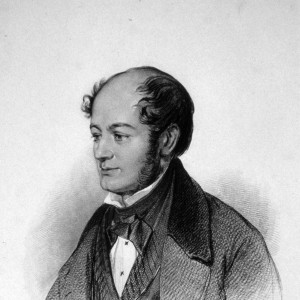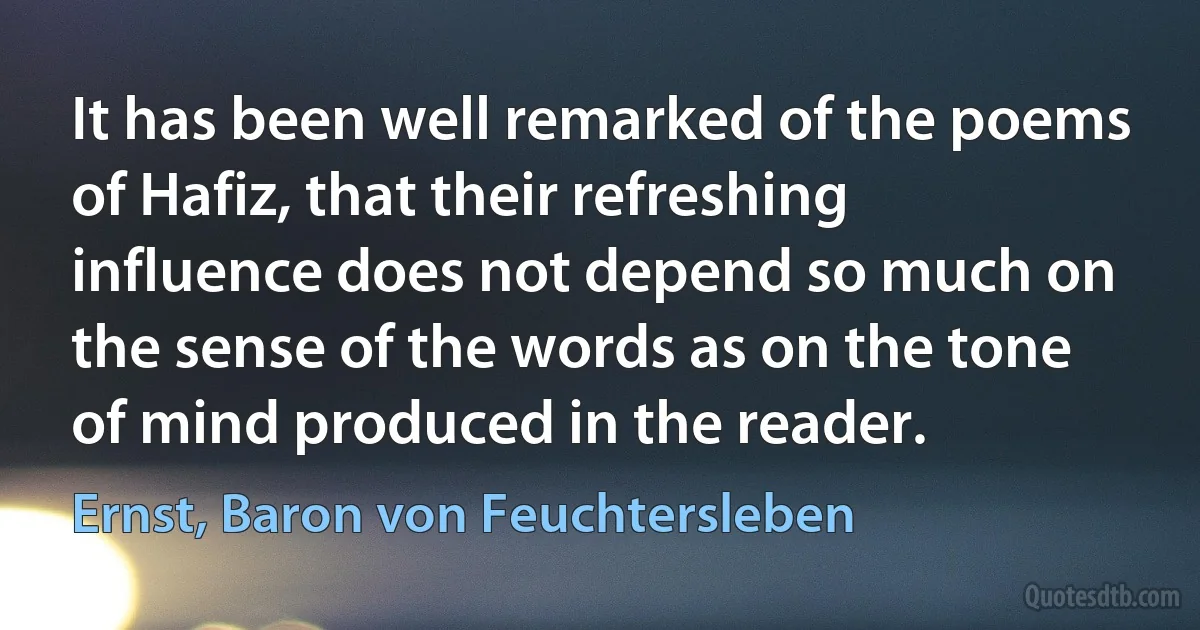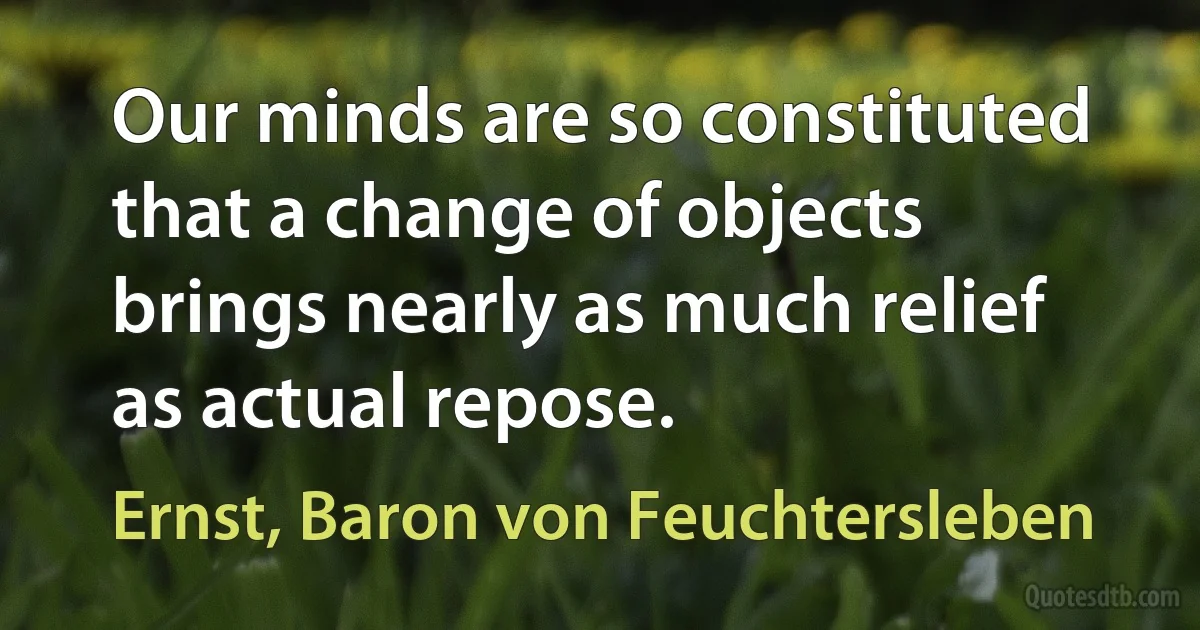Ernst, Baron von Feuchtersleben quotes
Ernst, Baron von Feuchtersleben was an Austrian physician, poet, and philosopher renowned for his contributions to medicine and mental health. His writings combined scientific insight with a humanistic perspective, influencing 19th-century approaches to psychological well-being. He advocated for integrating compassion and philosophy into medical practice. Here are 17 of his quotes:
We live in stormy and unsettled times. Hence we may confer a benefit, not only on ourselves, but on others, by diverting attention from the exciting circumstances of the present day-from the disheartening eccentricities of a literature which meanders in a thousand frivolous directions-to the calm regions where the inner man, self-examined, submits himself to moral treatment. Here our connection with things, our object, our duty, become clear; and, while we quietly separate ourselves from a world which is unable to assure us of anything, we feel that the joy we thought lost again returns, and that a second innocence spreads its clear and tranquillizing light over human existence. The child may amuse himself with childish rhymes. Man should find his recreation in reflecting on his relation to the things of this life. To all has this power been vouchsafed; by all should it be exercised.

Ernst, Baron von Feuchtersleben
We have aimed at popularity in the best sense of that term. The truly popular writer never sinks into the vulgar crowd. He rather raises the masses by bringing the highest subjects within their comprehension, making them, without a show of erudition, easily understood.

Ernst, Baron von Feuchtersleben
Composition, even when we have no idea of appearing in print, is an excellent dietetic tonic. ... The best and quickest mode of banishing a painful impression, or a torturing feeling, is to give it expression in words. We thus relieve the mind from present, and fortify it against future pangs.

Ernst, Baron von Feuchtersleben
A treatise on mental dietetics would be imperfect without some special notice of that most irrational and melancholy of all human torments, hypochondriasis. Reason, morality, wit, and even religion, have endeavoured by every possible means to exorcise this demon. By pamphlets and by books-in tragedy and in comedy - from the pulpit and on the stage, it has been denounced and ridiculed.

Ernst, Baron von Feuchtersleben
Had Mephistopheles conferred no other service on Faust than easing him for a while of his cloak of learning, the doctor would have had little cause for despair. But the act of awaking is regulated by different principles from those which govern the act of going to sleep. In the former case, the hand of force is often necessary. Life points out with an iron staff the path which each individual should follow. Happy is the man who sees this staff, and follows the path; instead of tarrying by the way until weary, and, incapable of further exertion, he sinks bleeding to the ground. A high degree of mental culture, or a delicate tact, possessed by few, are required to distinguish the necessity of earnestness, or even of pain, in the midst of enjoyment.

Ernst, Baron von Feuchtersleben
Until we attain a clear idea of our inclinations, the best line of conduct we can pursue is to act uprightly; and establish for ourselves certain rules, adapting them to the various conditions of our existence, so as to penetrate and purify our whole life. Among these rules, I would include the conviction that hatred may be subdued by love; and to impress this axiom more strongly on the mind, we should remember the blessings conferred by love on the human race.

Ernst, Baron von Feuchtersleben
Who is unacquainted with the sparkling eye. The full and quick pulse, the free respiration, the glowing colour, and serene brow of the joyous? Who is not familiar with the trembling aspect, the stammering hesitation, the cold ruffled skin, the bristling hair, the palpitating heart, the uneasiness, the impeded respiration, the paleness, the low pulse, and all the other symptoms occasioned by fear?

Ernst, Baron von Feuchtersleben
As character comprises the entire sphere of the educated will, so temperament is nothing else than the sum of our natural inclinations and tendencies. Inclination is the material of the will, developing itself when controlled, into character, and when controlling, into passions. Temperament is, therefore, the root of our passions; and the latter, like the former, may be distinguished into two principal classes. Intelligent psychologists and physicians have always recognised this fact...

Ernst, Baron von Feuchtersleben
Ernst, Baron von Feuchtersleben
 Occupation: Austrian Psychiatrist
Occupation: Austrian Psychiatrist
Born: April 29, 1806
Died: September 3, 1849
Quotes count: 17
Wikipedia: Ernst, Baron von Feuchtersleben


